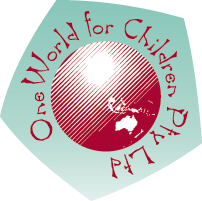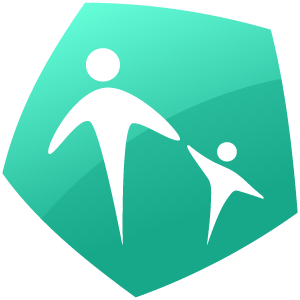Administration of First Aid
 Policy
Policy
First Aid will be administered as necessary by staff who holds a current first aid certificate.
This policy should be read in conjunction with:
- Incident, injury and trauma policy
- Anaphylaxis policy
- Asthma policy
- Diabetes policy
- Medication policy
Relevant legislation and Standards
Education and Care Services National Law Act 2010: Sections 167, 169
Education and Care Services National Regulations 2011: Regulations 87, 89, 136, 137(1)(e), 168(2)(a), 245
National Quality Standard, Quality Area
Occupational Health and Safety Act 2004
Background
First aid can save lives and prevent minor injuries or illnesses from becoming major ones. The capacity to provide prompt basic first aid is particularly important in the context of an early childhood service where staff have a duty of care and obligation to assist children who are injured, become ill or require support with administration of medication.
Legislation that governs the operation of approved children’s services is based on the health, safety and welfare of children, and requires that children are protected from hazards and harm. The Education and Care Services National Regulations 2011 state that an Approved Provider must ensure that at least one educator with current approved first aid qualifications is in attendance and immediately available at all times that children are being educated and cared for by the service. Under the Education and Care Services National Law Act 2010, the Australian Children’s Education and Care Quality Authority (ACECQA) are required to publish lists of approved first aid qualifications. These lists are available at www.acecqa.gov.au/qualifications/approved-first-aid-qualifications. As a demonstration of duty of care and best practice One World Children’s Centre recommends all educators have current approved first aid qualifications.
Definitions
Approved first aid qualification: A list of approved first aid qualifications, anaphylaxis management and emergency asthma management training is published on the ACECQA website: www.acecqa.gov.au
Duty of care: A common law concept that refers to the responsibilities of organisations to provide people with an adequate level of protection against harm and all reasonable foreseeable risk of injury.
First aid: The provision of initial care in response to an illness or injury. It generally consists of a series of techniques to preserve life, protect a person (particularly if unconscious), prevent a condition worsening and promote recovery. First aid training should be delivered by approved first aid providers, and a list is published on the ACECQA website: www.acecqa.gov.au/qualifications/approved-first-aid-qualifications
First aid kit: The Compliance Code First aid in the workplace, developed by WorkSafe Victoria, lists the minimum requirements for a first aid kit. First aid in the workplace is available at www.worksafe.vic.gov.au
Incident, Injury, Trauma and Illness Record: Contains details of any incident, injury, trauma or illness that occurs while the child is being educated and cared for by the service. Any incident, injury, trauma or illness must be recorded as soon as is practicable but not later than 24 hours after the occurrence.
Medication record: Contains details for each child to whom medication is to be administered by the service. This includes the child’s name, signed authorisation to administer medication and a record of the medication administered, including time, date, dosage, manner of administration, name and signature of person administering the medication and of the person checking the medication
Resuscitation flowchart: Outlines the six steps involved in resuscitation: danger, response, airways, breathing, compression and defibrillation. The Australian Resuscitation Council provides flowcharts for the resuscitation of adults and children free of charge at www.resus.org.au/flowcharts.htm
Serious incident: An incident resulting in the death of a child, or an injury, trauma or illness for which the attention of a registered medical practitioner, emergency services or hospital is sought or should have been sought. This also includes an incident in which a child appears to be missing, cannot be accounted for, is removed from the service in contravention of the regulations or is mistakenly locked in/out of the service premises . A serious incident should be documented in an Incident, Injury, Trauma and Illness Record as soon as possible and within 24 hours of the incident. The Regulatory Authority (DEECD) must be notified within 24 hours of a serious incident occurring at the service.
The approved provider (or delegate) is responsible for:
- ensuring that every reasonable precaution is taken to protect children at the service from harm and hazards that are likely to cause injury
- ensuring that at least one educator with current approved first aid qualifications is in attendance and immediately available at all times that children are being educated and cared for by the service. This can be the same person who has anaphylaxis management training and emergency asthma management training
- appointing a nominated first aid officer. This is a legislative requirement where there are 10 or more employees
- ensuring a risk assessment is conducted prior to an excursion to identify risks to health, safety, or wellbeing and specifying how these risks will be managed and minimised
- ensuring that first aid training details are recorded on each staff member’s record
- ensuring there is an induction process for all new staff, casual and relief staff, that includes providing information on the location of first aid kits and specific first aid requirements
- ensuring that parents are notified within 24 hours if their child is involved in an incident, injury, trauma or illness at the service and recording details on the Incident, Injury, Trauma and Illness Record
- ensuring that staff are offered support and debriefing following a serious incident requiring the administration of first aid
- ensuring a resuscitation flow chart is displayed in a prominent position in the indoor and outdoor environments of the service
- keeping up to date with any changes in procedures for administration of first aid and ensuring that all educators are informed of these changes.
The nominated first aid officer is responsible for:
- maintaining a current approved first aid qualification
- responding to staff assistance when dealing with a serious incident, trauma
- providing and maintaining an appropriate number of up-to-date, fully-equipped first aid kits that meet Australian Standards
- providing and maintaining a portable first aid kit that can be taken offsite for excursions and other activities
- monitoring the contents of all first aid kits and arranging replacement of stock, including when the use-by date has been reached
- disposing of out-of-date materials appropriately
- ensuring safety signs showing the location of first aid kits are clearly displayed
- ensuring that all educators’ approved first aid qualifications, anaphylaxis management training and emergency asthma management training are current and meet the requirements of the National Act (Section 169(4)) and National Regulations (Regulation 137), and are approved by ACECQA
- providing inhouse training of the administration of an auto-injection device annually and documenting on staff files
- The keeping up to date with any changes in the procedures for the administration of first aid.
Certified Supervisors and other educators are responsible for:
- implementing appropriate first aid procedures when necessary
- maintaining current approved first aid qualifications, and qualifications in anaphylaxis management and emergency asthma management, as required
- practicing CPR and administration of an auto-injection device at least annually
- ensuring that all children are adequately supervised while providing first aid and comfort for a child involved in an incident or suffering trauma
- ensuring that the details of any incident requiring the administration of first aid are recorded on the Incident, Injury, Trauma and Illness Record
- conducting a risk assessment prior to an excursion to identify risks to health, safety or wellbeing and specifying how these risks will be managed and minimised
Parents/guardians are responsible for:
- providing the required information for the service’s medication record
- providing written consent (via the enrolment record) for service staff to administer first aid and call an ambulance, if required
- being contactable, either directly or through emergency contacts listed on the child’s enrolment record, in the event of an incident requiring the administration of first aid.
Source
KPV Early Childhood Management Manual
Australian Children’s Education and Care Quality Authority (ACECQA): www.acecqa.gov.au





 One World for Children Acknowledgement of Country: Here is the land; Here is the sky; Here are my people and here am I. We give thanks to future, present and past; Ancestors and Elders and the connection that lasts. We acknowledge the Wathaurong people on whose land we learn and play; We promise to look after it every day. ©
One World for Children Acknowledgement of Country: Here is the land; Here is the sky; Here are my people and here am I. We give thanks to future, present and past; Ancestors and Elders and the connection that lasts. We acknowledge the Wathaurong people on whose land we learn and play; We promise to look after it every day. ©